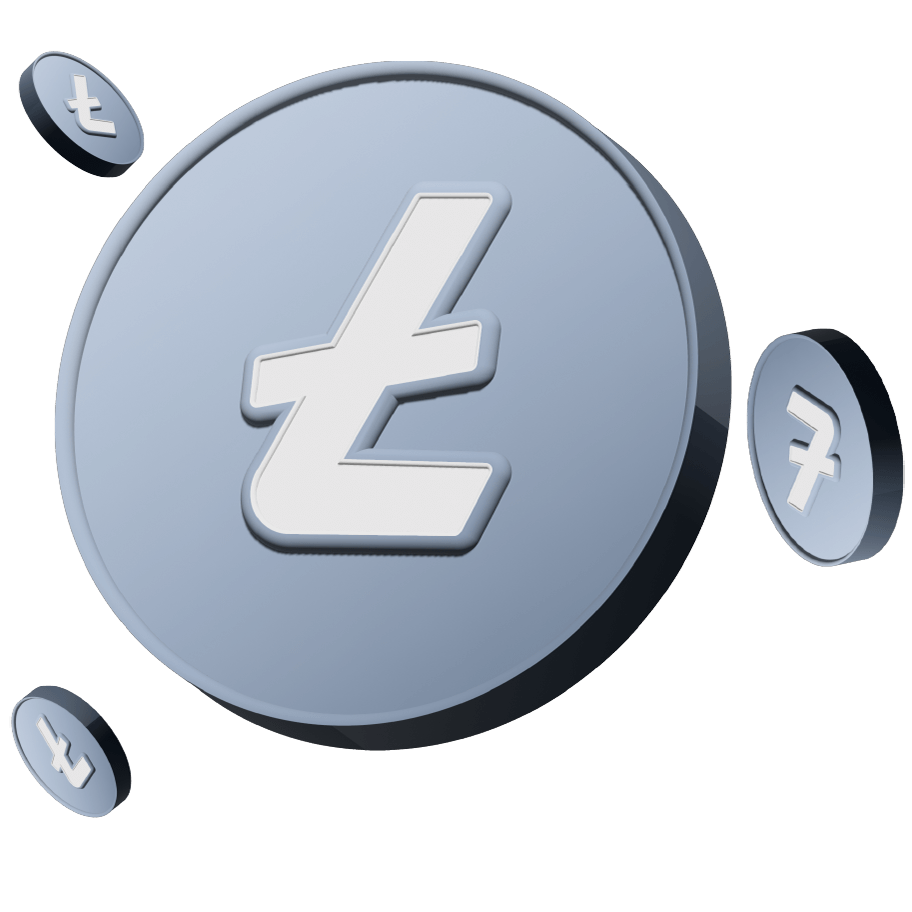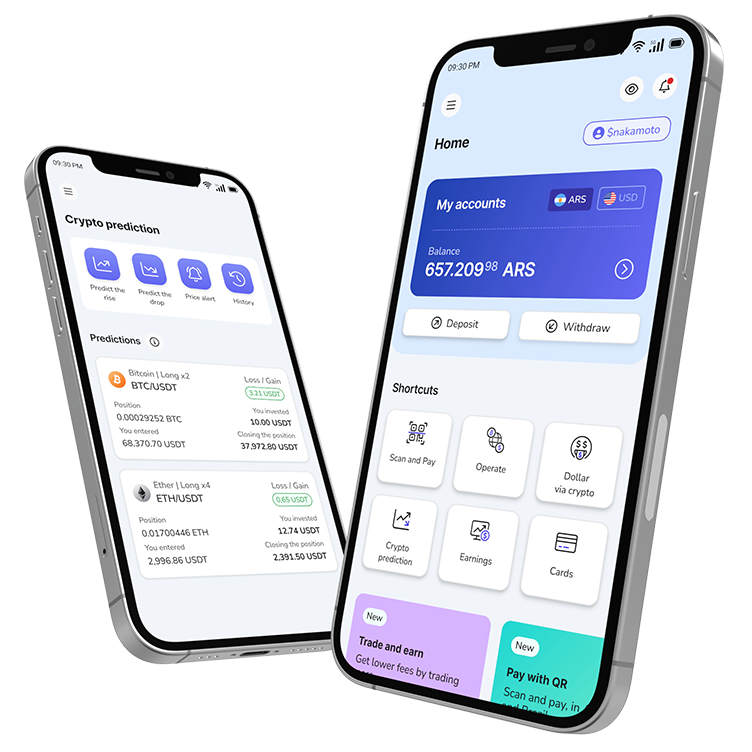
Learn about Litecoin
Check the price of Litecoin in us dollar in the simplest way with Satoshi Tango
Litecoin: what it is, how it works and what is the LTC price
Litecoin is a decentralized open source project. It was born only two years after Bitcoin as an alternative proposal for it, working as a means of payment for low-value transfers. This network owns its native cryptocurrency, known as LTC.
Litecoin Calculator: What is the price of LTC?
The price of LTC, like that of most cryptocurrencies, fluctuates almost constantly. It is a widely accepted cryptocurrency in the ecosystem, so we can calculate its value in almost any currency in the world.
Litecoin to dollar
The US dollar is the global reference currency, so it is also used to reflect the value of LTC.
Litecoin to us dollar
The value of Litecoin can be calculated in many local currencies, including the us dollar.
What is Litecoin (LTC)?
Litecoin is the name by which the decentralized open source project is known. It emerges as an alternative to Bitcoin, with lower commissions for fast transactions and without intermediaries. The creators of the project considered Bitcoin as "digital gold", so they proposed the creation of "digital silver" only two years after the birth of the first decentralized cryptocurrency. It is considered the third cryptocurrency conceived in history, after Bitcoin and Namecoin.
This network owns its own native token, known as LTC. It is currently outside the top 10 in terms of market capitalization, although it is one of the most accepted coins in the ecosystem.
History of Litecoin
Litecoin was born on October 7, 2011, just 2 years after the creation of Bitcoin and as an alternative to it. Its creator and most outstanding figure is Charlie Lee, a computer science graduate born in the Ivory Coast and raised in New Jersey, United States.
This network sought to establish itself as a means of payment, with lower commissions and faster block generation, focusing mainly on the eCommerce segment. The initial version of the software was released accompanied by a message, which read the well-known comparison to the “digital gold” called Bitcoin, with Litecoin being the “silver”. The idea was to be based on the idea of Bitcoin, but managing to improve or eliminate the problems of the network, taking the best of it.
Characteristics of this cryptocurrency
According to its developers, LTC comes to solve some of Bitcoin's deficiencies, such as its scalability, failures in receptions, the high cost of mining and the high commissions of the network. It has some very similar characteristics to Bitcoin, since it is based on its code, but with some improvements according to its developers. Let's review them.
Issuance of LTC
The network uses the Proof of Work (PoS) or Proof of Work protocol, that is, it is a network that also uses mining. Within the network, a block is generated every 2 and a half minutes, being considerably faster than Bitcoin when it comes to confirming transactions.
Litecoin Supply
As with Bitcoin, the Litecoin supply is limited: there will be no more than 84,000,000 LTC. Litecoin issuance is four times that of Bitcoin.
Litecoin Coin Halving
Litecoin uses halving in order to control its issuance, just like Bitcoin does. It divides in half the emission of LTC and the reward to miners every 840,000 blocks, that is, approximately every 4 years.
Speed
Transactions are validated very quickly. As we mentioned before, a block in the network is generated every 2.5 minutes, being approximately 4 times faster than Bitcoin in that aspect. This is achieved through the use of the algorithm known as Scrypt, similar to the Bitcoin hash but lighter and that allows the creation of blocks of less than 1MB in an agile and fast way.
Consensus
The consensus protocol used is Proof of Work (PoS). As with Bitcoin, it is based on the resolution of complex mathematical problems in order to solve blocks. An important difference with Bitcoin is the hardware used for its mining: although it is no longer possible to use home computers to do it, it is not necessary to use ASIC miners, but it is enough with graphics cards. It is worth clarifying that, in the same way, there are specific ASIC miners for LTC mining.
Scalability of Litecoin
It is a network that supports around 60 transactions per second, being one of its great strengths. To compare with the most used cryptocurrencies, Bitcoin processes 8 transactions per second and Ethereum 20.
What is Litecoin for?
Like all other cryptocurrencies, Litecoin can be used to trade for goods and services. Litecoin, by offering very low network fees, is used by many businesses around the world. In addition, this feature makes it a good option when it comes to quickly sending money to family or friends.
How does Litecoin work?
Being based on the Bitcoin code, we can say that it works in a similar way: it is an open source blockchain that works thanks to the work of miners, who offer their computing power in exchange for a reward in LTC.
Advantages and disadvantages of LTC
As we mentioned at the beginning, Litcoin emerges as an alternative to Bitcoin, seeking to improve the aspects in which it failed. We are going to review the advantages offered by this network and also its disadvantages.
Advantages of Litecoin
- Simpler mining:the hardware to be able to mine is much more accessible than that of other cryptocurrencies.
- Inferior Competition:While the difficulty continues to grow, LTC mining does not have as many competitors.
- Transaction speed:Each Litecoin block is generated every 2.5 minutes, 4 times faster than a Bitcoin one
- Higher issuance:Can be considered an advantage as more people will be able to hold tokens in the future.
- Price:its value is considerably less than that of Bitcoin, so acquiring it is easier.
Disadvantages of Litecoin
- Power:Electric power is required for LTC mining.
- Speed:Although it is a very fast network, it still needs to improve this aspect if it wants to replace fiat money.
Litecoin vs Bitcoin: differences and similarities
As the first and best known cryptocurrency, comparisons with Bitcoin are inevitable. Litecoin emerges as an alternative to Bitcoin and proposes to improve the aspects in which it has failed, being one of the few cryptocurrencies that managed to identify these shortcomings and propose true solutions.
Despite trying to differentiate themselves from Bitcoin, we must also say that they have many similarities with each other. We are going to review both the differences and the similarities that exist between both cryptocurrencies.
Differences between Litecoin and Bitcoin
- Issuance:the issuance of LTC is 4 times greater than that of BTC. There will be 84,000,000 coins.
- Speed:Litecoin blocks are generated every 2.5 minutes, 4 times faster than on the Bitcoin network.
- Halving:Happens every 840,000 blocks, unlike Bitcoin's 210,000.
- Mining difficulty:adjusts much faster than in the Bitcoin network. It does it every 3 days and 12 hours.
Similarities between Litecoin and Bitcoin
- Issuance limit: the issuance of both is limited to preserve their value.
- Consensus protocol:both use the Proof of Work (PoS)
- Halving protocol every 4 years:the issuance and rewards are divided in half after that number of years.
- becomes more difficult:with the entry of more miners, they adjust the difficulty to keep the emission under control.
Litecoin - Frequently Asked Questions
What supports Litecoin?
The network is sustained by miners, who confirm network transactions. For their work, they are paid in LTC.
What project does Litecoin have?
The idea of Litecoin is to solve the problems of Bitcoin, mainly regarding small transactions and its high commission.
Who owns Litecoin?
Litecoin is an open source decentralized network, which means that it does not have an owner and anyone can get involved in it. Nobody controls it and it is the users themselves who ensure its proper functioning.
How many LTC are there?
The issuance of LTC is limited to 84,000,000 coins. Currently, more than 70,000,000 have been issued, which represents about 85% of the total.
How much did a Litecoin cost when it came out?
At the time of its launch, each LTC was worth approximately US$4.30.
What algorithm does Litecoin use?
The algorithm used by the network is known as Scrypt, which allows blocks to be generated faster and with a much lower weight than Bitcoin.

Generate profits with your cryptos
Grow your investments faster with Satoshi Tango. We offer the best rates on the market and best of all, profits are credited daily in the same currency you invested in.
